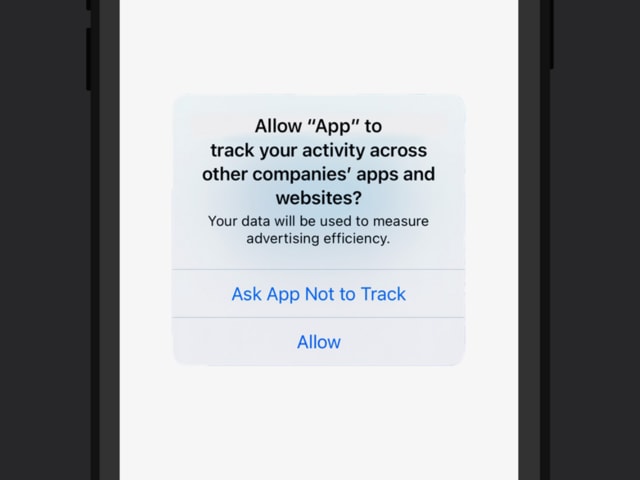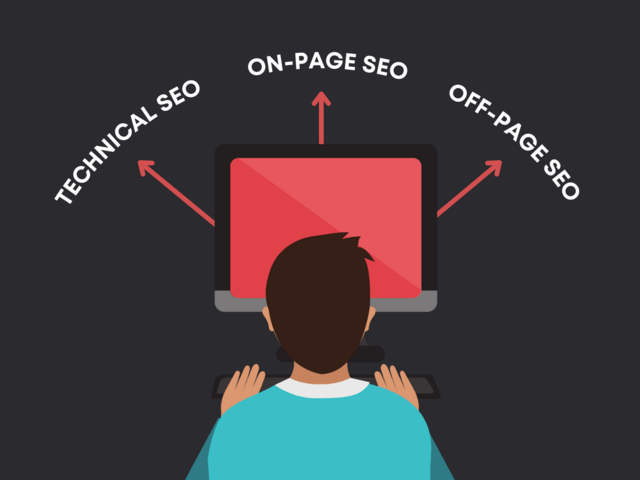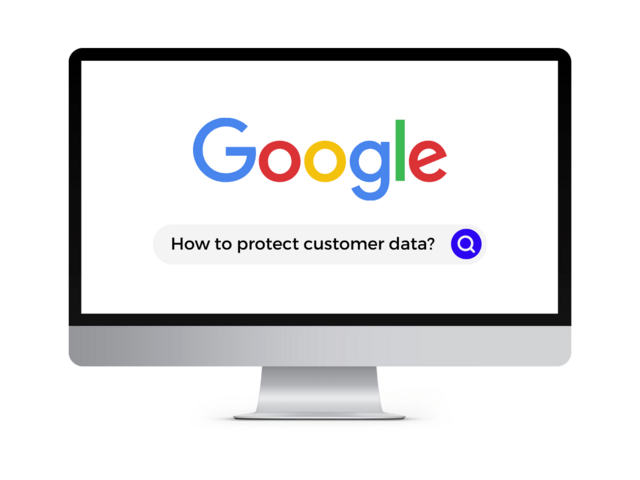
The emergence of Web 2.0 resembled those mystery movies where you enter lands of excitement and opportunity. Google, Facebook, and other online platforms gave us a key, unlocking the door with permission to market our exact buyer persona. This open door meant lower customer acquisition costs, requiring fewer trust building branding efforts.
Direct response marketers such as Frank Kern laughed at the idea of using organic SEO and free forms of social media marketing. It was just too easy to throw up a landing page and target the 40-year-old man living in Alabama, who is interested in fishing poles.
Why work so hard when making money is easy? Isn’t investing a few dollars per click and watching the revenues flow a better idea? Well, as with all too good to be true profit sources, the window of opportunity eventually slams shut, leaving get-rich-quick marketers scrambling for the next big thing.
Digital Marketing Has Changed Forever
As marketers, with the emergence of GDPR, we started seeing the writing on the wall around 2018. This data protection law in Europe meant our free-for-all with user information was likely over.
GDPR happened the same year that Mark Zuckerberg had his congressional hearing. The sweat dripping from his pressure filled anxious body told marketing companies that change is coming.
As paid traffic continued to increase in costs, so did the fear of in-house agencies. Watching governments get involved in the information that search engines and social media companies collected was an immediate sign that it was time to change course.
How Digital Marketing Became Restrained in 2021
2021 was a pivotal year for paid search advertising. Major companies started taking action on the 27 federal policies put in place.
Apple announced IOS14, giving users the option to eliminate data tracking.
Facebook provided users with more information about terms and how they track data.
DuckDuckGo.com offered users’ complete search engine privacy.
These policy changes made finding your exact user difficult even after they visited your website. Social media advertising & re-targeted marketing returned to more of an art than a science.

Welcome to Web 3.0
Well folks, in today’s world, it looks like “good business” is good for business. But perhaps that is good news.
Potential customers question before accepting the information they find. Referrals are more about true social proof rather than buying access to influencers’ followers who indirectly recommend your product.
Website traffic is no longer as easy as 1-2-3. We now use less personalized data, along with a solid brand strategy, to win in search engines and social media platforms. But this is great news because the marketing efforts we give to a campaign yield longer revenue streams.
No, we will not build Rome in a day. This form of marketing requires an investment that builds momentum and pays off in the long run. It is a learning process, giving you powerful decision making as you better understand your customer.
No, you will not give up pursuing paid traffic to develop leads and sales. Rather, you will combine a SEO strategy along with your paid advertising efforts. By combining the two, you create a reciprocal approach to digital marketing that’s more powerful than the sum of each part.
Building a Solid SEO Foundation
No longer are technical website errors allowed if you expect to drive quality traffic to your site. Like a house, your online presence requires maintenance and an expert eye. A specialist who makes sure that small issues do not become big problems down the road.
Achieving the top position in organic search results doesn’t happen by chance. It results from technical, on-page, and off-page search engine optimization.
Technical SEO
We will try to not get “technical” when talking about technical SEO. Let’s just say there is a specific way that your website needs to be set up if you hope to receive traffic from an organic search result.
Not only are actionable SEO efforts required for your website setup, your pages must communicate with each other. Your site structure is how Google finds or misses your pages when they crawl your website.
On-Page SEO
A paid ad could not care less about how we set your page up. But a Google search finds the words, images, URL structure, and other information about a page highly important to your ranking position.
No longer can you stuff a keyword and hope to rank. Your page must be full of relevant details, keeping the user on the page until they take action by navigating to another page or buying your product.
Off-Page SEO
It isn’t as simple as “if you build it, they will come.” How your website discusses and how other websites feel about your page are both ranking factors.
To succeed at SEO, you need both inbound links from other websites and internal links from your own website. Organic search marketing agencies must have a detailed understanding about white hat backlink building practices.

Building Trust With Content Marketing
Remember that blog that you thought was a good idea and paid for an “SEO expert” to create content for? Well, you were on the right track but most likely under committed. Also, you probably hired the wrong SEO agency to perform the work, resulting in a low content score.
It is time to go beyond those outdated articles and create detailed evergreen content written for your target audience. You now need to think of quality content as your primary means of inbound marketing.
Online searchers will never see your mediocre piece of content since 89.04% of people click on the 1st page of Google. For content marketing to be effective, you need comprehensive content showcasing your industry expertise.
But you can’t write about any topic you want. You need content around topics that your website has the potential to rank for.
Optimizing For Other Search Engines
Google, Yahoo, and Bing are not the only search engines. Depending on your industry, consider SEO for product pages, product pages, social conversations, and directory listings.
E-Commerce Search Engines
Brands spend thousands on E-Commerce pages for their own website. So why do they slap together a summary of their sales copy and paste it into Amazon, Wal-Mart, and other E-Commerce platforms? This is a big mistake!
While these online retailers limit your ability by restricting word count and removing images, you still need to play full out when creating e-commerce listings. Yes, Google Shopping is important, but 54% of product searches happen on Amazon.com. That means for brand awareness, you must optimize product pages on every website you are listing them.
Social Media Search Engines
If your SEO agency is doing their job, they are using the organic search data they collect for social media marketing. Point blank, you need a solid SEO strategy for Facebook, Instagram, Twitter, Pinterest, and TikTok. You cannot depend on the virality of a video for the traffic you receive from these sites. Thanks to post throttling, these days creating viral videos is like playing the lottery.
Using the data collected from the research you did on how to improve your organic ranking. Use the topics from your website as content for social platforms and use keyword research to ensure your descriptions cover all important search terms.
Digital marketing is Not Dead
We hope you understand by now that both paid search marketing and SEO are as alive as ever. In case you need further encouragement, more people are searching and shopping online than in previous years. This trend will not change in the future.
If you’ve been tip toeing with the idea of digital marketing, now is the time to dive in. There are still plenty of ROI opportunities in either form of a search result. While landscapes have changed, digital marketing agencies still have access to powerful tools, and when used properly, help minimize costs and maximize your ROI.
These tools often work synergistically between organic and paid advertising.
Transparent Data Reporting
While much of the personalized user data doors have shut, search engines and social media companies are opening their doors and inviting marketers in. They now give access to secrets previously held within the company.
One such example is Google Analytics 4.0. GA now uses machine learning to understand how users travel the internet and your website. They understand the need to provide a healthy balance between protecting a user’s privacy while improving the experience they have with the internet. Also, these are for-profit businesses, so it is in their best interest to continue generating ad revenues.
Google hopes to find this balance and communicate it through the Google Analytics dashboard.
At our agency, we find insights to help your ad spend by using Google Analytics, Google Search Console, Google trends, and other data sources.
Finding the Right Balance Between Paid Ads and SEO
Shopify reports that 60% of traffic should come by building brand awareness through organic search. That leaves 40% of marketing efforts in social media and PPC ad campaigns. This healthy balance seems logical and is a good starting point for your marketing strategy.
With that said, each business is unique and provides its own competitive landscape. The right balance for your marketing campaign will be based upon the data we accumulate, sift through, and narrow down to what is helpful to your search strategy.
Web Design & Digital Marketing Agency
From website concept to the final click, The Nine handles every aspect of your design and digital marketing. Our team creates a profitable strategy for your business and executes it with precision.
Contact our team to learn how we can optimize and increase your paid and organic traffic for peak profitability.


